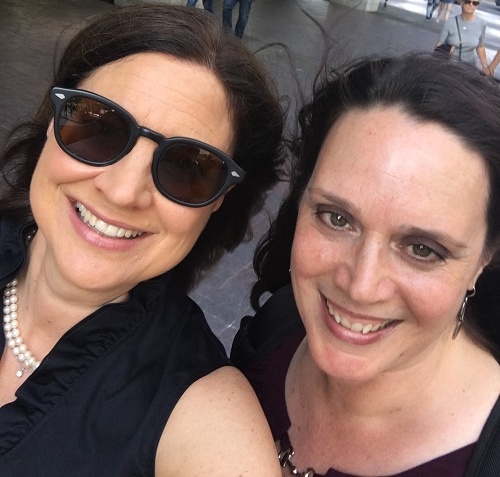
In my last article I talked about how building trust with clients is key to maintaining long-term relationships and explained how transparency, clear communication, authenticity and putting clients first are integral to building that trust. This article is about choosing team members that share these values in order to help you promote and enhance your efforts to build client trust (this topic is explored in more detail in Communication Risk, pages 63-64 and Advisor at Risk, pages 37-42).
Your team members, whether they are senior, junior or peers, are a reflection on you, even if you don’t work directly with them. It is crucial for every team member to embody the values that lead to successful client relationships. That way, in every client communication, the client experience will be consistent. My business practices support the conclusion that if you focus on building client trust, success will follow.
When you think of all your client touchpoints, whether it is your website, calls into the office, documents sent out (including statements), financial plans, emails or form letters, there must be an energy, quality and content that exudes the messaging that builds client trust. During this pandemic, there are more opportunities to build client trust.
One could write an entire book on this subject alone (although I am not writing another book — the last one almost killed me!). I will list in this article some key considerations to help you evaluate your present team and consider areas for improvement:
Consider the larger team (if you are a sole portfolio manager registered and working on your own or in a small team, skip to the next tip)
This is a larger task than you might think.
Look at your business card. Of course, your securities/mutual fund dealer’s name is on the card. While everyone working for the dealer is not part of your team, per se, to build trust with clients, you would want your dealer to have a sufficient compliance regime for both hiring and supervising to avoid any scandals that might appear on the front page of your local newspaper or prominently on the web.
Further, when meeting other advisors registered at your dealer, you will want to be awake to whether the values of the organization permeate the actions and attitude of other advisors. If the only focus is sales and not building trust and compliance, that may be a red flag for you.
I am not suggesting that sales and revenue are not very important — of course they are! But if you build trust with clients and have a strong compliance regime, the revenue will follow. The opposite is true too — if there isn’t a value of trust-building and compliance, your revenue will be significantly limited, and your expenses and risk will increase substantially.
Names on materials delivered
When you consider the materials sent to clients, whether electronic or otherwise, consider the names listed on these documents. Do these names include your branch manager, your assistant and anyone else? Do the people listed share your values of building client trust so that every client encounter and client experience serve that purpose? Do your dealer’s materials and website only meet minimum compliance requirements and perhaps focus on selling to clients, rather than improving the client experience and, therefore, building trust?
Online tools
Are the tools developed useful for clients, thereby building trust, or do they impose products on your clients that do not serve their needs? When I use online banking, I am frustrated by how long it takes. I am forced into several clicks of reviewing products my bank wants me to buy before I can actually do my banking, which impacts my client experience and erodes my trust. The message from the bank is that they don’t care that they are inconveniencing or delaying clients — they just want to sell something. Does this make clients want to move their accounts? You bet it does!
The nucleus — your teammates
Consider each member of your team. This includes the other advisors you work closely with, your branch manager or supervisor and the assistants, whether they are licensed or not. Their names may be on your statements, on your emails and on your website. These people are probably in direct contact with your clients on a regular basis.
Go through all your client touchpoints. What do you think the client experience is like? Does each teammate have a different role they carry out, with the common goal of building client trust? Does each person have the expertise to complete their tasks in a manner that improves the client experience? Or are there areas to improve, such as how quickly you respond to client emails or telephone messages, or how quickly you execute client orders? Is the quality of all the product explanations you offer clear enough?
Know what you, as a registered advisor, can delegate (e.g., arranging meetings with clients) and what you are not permitted to delegate (e.g., know-your-client meetings), and make sure the other team members know their limitations, both in respect of regulatory requirements as well as expertise.
For example, you may be a mutual fund or securities advisor and also be insurance licensed, but you may not have enough insurance expertise to make a recommendation and sale for a complicated insurance product. In that case, it is better for the client, and perhaps less remunerative for you, to recommend another insurance agent who does have the expertise to better service this client need. I do this in my practice regularly. While I have a licence to practice any area of law, if I think the client will be better served either by others in my office or even others outside my office, I will not hesitate to refer the client to someone else. That builds trust.
If your team members do not embody these values, it is important to give them the training to get them up to speed on your values. If the team members do understand and service clients in a manner that improves client trust, make sure you express appreciation to those people every day. During this pandemic, it is even more important to express appreciation and go the extra mile for staff who have more on their plates than they would in previous days before Covid-19. They may have children underfoot in addition to the pressures that come with full-time work. Think about how you can provide them with additional support or reduce their workload.
I am very lucky. At our small law firm, we have a team of six lawyers and five staff. In such a small organization, it is easier to ensure that each person shares your values of first-class client service. We can be nimble and train and supervise the very few people we have to ensure quality and client experience.
It is also very fortunate that each person on my team already embodies our law firm’s values. In particular, my executive assistant, Kim, has always been so great with my clients that I receive comments about her on a regular basis. Kim and I are very connected. Even through Covid-19, with both of us working from home, Kim has been extremely responsive to my clients. That helps me continue to build trust with clients. Kim, and my associate lawyers, help me meet deadlines and provide the quality of service that builds trust with clients. Thanks to their commitment and excellent service, my clients, who are usually unhappy about having to be defended in lawsuits or regulatory proceedings, find the experience that much less painful.
Consider each of your teammates and make sure you are surrounded by others who share your values to promote client service and to make decisions that put clients first. Remember the old expression, “You are the company you keep,” which is so true, as it pertains to the values of your organization and each team member. So, scrutinize each teammate and make sure they value client service to build client trust as much as you do. It will pay off.
This article is dedicated to my invaluable assistant Kimberly McPeake, who is in the photo below with me.

